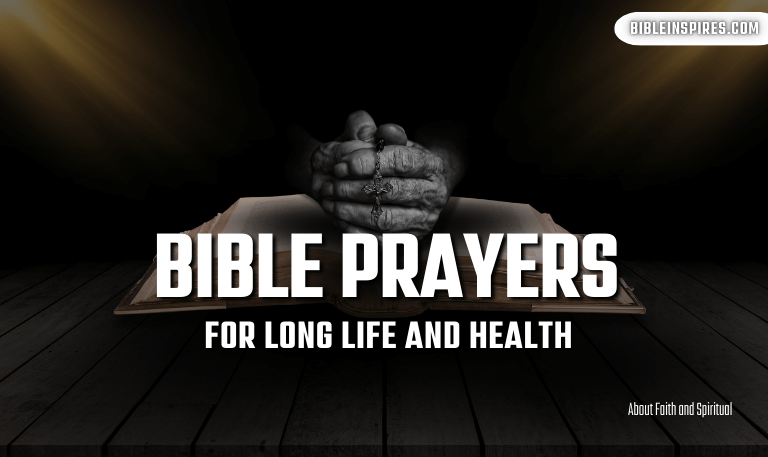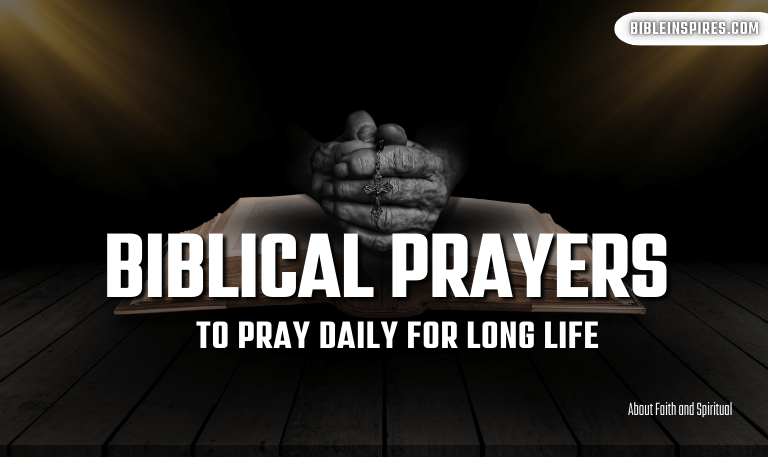Forgiveness lies at the very heart of Christian teachings, serving as a central pillar in the spiritual journey of a believer. Through the act of forgiveness, Christians embrace God’s grace, foster peace, and navigate life’s challenges. This article explores the profound power of forgiveness in Christian life, shedding light on its biblical foundations, practical applications, and the transformative impact it has on personal relationships, spiritual growth, and society.
In this comprehensive guide, we will discuss the Power of Forgiveness in Christian Life, practical steps to cultivate it, challenges in the process, and the role of forgiveness in fostering reconciliation, both within the self and in broader communities.
What is Forgiveness in Christian Life?
Forgiveness, as defined by the Bible, involves pardoning someone for their wrongdoings, allowing healing to occur, and restoring the peace between the person offering forgiveness and the one being forgiven. The concept of forgiveness is not merely about forgetting or excusing harmful actions but acknowledging the hurt, choosing to let go of resentment, and seeking reconciliation. In Christian life, forgiveness is more than an action—it is a mindset and a vital component of living a Christ-like life.
Why Forgiveness is Essential to Christian Faith:
Forgiveness reflects God’s love and grace toward humanity.
It is a commandment by Jesus Christ, emphasizing its importance in Christian practice.
It promotes peace, both internally and within relationships.
Read Also: Bible Verses for Forgiving Your Enemies
Biblical Teachings on Forgiveness: A Christian Foundation
Key Scriptures About Forgiveness
The Bible speaks extensively about forgiveness. Some of the most powerful verses on forgiveness are:
Matthew 6:14-15: “For if you forgive others their trespasses, your heavenly Father will also forgive you; but if you do not forgive others, neither will your Father forgive your trespasses.”
Ephesians 4:32: “Be kind to one another, tenderhearted, forgiving one another, as God in Christ forgave you.”
![The Power of Forgiveness in Christian Life [2025] 6 Power-of-Forgiveness-in-Christian-Life](https://bibleinspires.com/wp-content/uploads/2025/04/Power-of-Forgiveness-in-Christian-Life.png)
Colossians 3:13: “Bear with one another and, if one has a complaint against another, forgiving each other; as the Lord has forgiven you, so you also must forgive.”
These scriptures emphasize that forgiveness is not a suggestion but a divine command that reflects the love and grace God offers to humanity.
Jesus Christ’s Role in Forgiveness
The life of Jesus Christ exemplifies forgiveness. The ultimate act of forgiveness was seen through Jesus’ death on the cross, where He pardoned humanity for their sins. Jesus’ teachings on forgiveness are not just about forgiving small offenses, but also about forgiving those who have deeply hurt us, including enemies.
Luke 23:34: “Father, forgive them, for they know not what they do.”
Even in His last moments, Jesus asked His Father to forgive those who crucified Him. This radical forgiveness demonstrates the depth of grace that Christians are called to emulate.
Theological Significance of Forgiveness
Forgiveness as a Divine Commandment
Forgiveness in Christianity is not optional. It is a commandment from Jesus Christ, integral to Christian life. By forgiving others, Christians align themselves with God’s will, embracing the values of love, mercy, and grace.
Forgiveness is also seen as essential for personal peace and spiritual healing. Holding on to grudges and resentment leads to bitterness, which can hinder spiritual growth. By practicing forgiveness, Christians free themselves from the burden of anger and unforgiveness.
Read Also: How to Forgive According to the Bible
The Role of God’s Grace in Forgiveness
Forgiveness is not something that Christians can achieve solely by their own efforts. It is through God’s grace that believers are empowered to forgive others. Grace is unmerited favor—a gift from God that enables Christians to do what would be impossible without His help. As God forgives sins freely, Christians are called to extend that same grace to others.
Forgiveness and Salvation
![The Power of Forgiveness in Christian Life [2025] 7 the-power-of-forgiveness-in-the-bible](https://bibleinspires.com/wp-content/uploads/2025/04/the-power-of-forgiveness-in-the-bible.png)
Forgiveness is closely tied to salvation in Christian theology. Christians believe that forgiveness is integral to being reconciled with God, leading to eternal life. The concept of “justification by faith” reveals that through Christ’s sacrifice and the forgiveness of sins, believers are justified before God.
Romans 5:1: “Therefore, since we have been justified by faith, we have peace with God through our Lord Jesus Christ.”
The Benefits of Forgiveness
Inner Peace and Emotional Healing
Forgiveness is a powerful tool for emotional healing. By forgiving those who have wronged us, we release the emotional burden of resentment, anger, and bitterness. This process allows Christians to experience profound peace and emotional freedom.
Proverbs 14:30: “A tranquil heart gives life to the flesh, but envy makes the bones rot.”
Forgiveness helps restore relationships, enabling Christians to experience peace within themselves and with others.
Spiritual Growth
Forgiveness nurtures spiritual growth. When Christians forgive, they practice humility, love, and mercy—key virtues in developing Christ-like character. This practice leads to greater spiritual maturity and a deeper relationship with God.
Matthew 18:21-22: “Then Peter came up and said to him, ‘Lord, how often will my brother sin against me, and I forgive him? As many as seven times?’ Jesus said to him, ‘I do not say to you seven times, but seventy-seven times.'”
The challenge of forgiving repeatedly strengthens one’s faith and dependence on God’s strength to forgive.
The Process of Forgiveness
Steps to Forgiveness
Forgiving someone can be challenging, but it is possible with the help of the Holy Spirit. Below are the steps that can guide Christians through the process of forgiveness:
- Acknowledge the Hurt: The first step in forgiveness is to recognize the pain caused by the wrongdoer. This allows the individual to confront their feelings rather than suppress them.
- Choose to Forgive: Forgiveness is a conscious decision, a choice to release the desire for vengeance and bitterness.
- Pray for Strength: Seek God’s strength through prayer to help overcome negative emotions and let go of resentment.
- Extend Forgiveness: Once forgiveness is offered, it is essential to act in love and continue to treat the person with respect and compassion.
Practical Examples of Forgiveness
Forgiveness is not merely theoretical—it should be put into practice. Here are some real-life examples:
A Christian forgiving a colleague who has taken credit for their work.
A family member forgiving a loved one for a past betrayal.
A believer forgiving someone who has hurt them emotionally or physically.
The Role of Prayer in Forgiveness
Prayer plays a vital role in forgiveness. Christians should pray for the strength to forgive and ask for God’s help in softening their hearts. Prayer can also be used to bless the person who wronged them, which further releases the individual from the hold of resentment.
Matthew 5:44: “But I say to you, Love your enemies and pray for those who persecute you.”
Read Also: Bible Verses About Forgiveness
The Challenges of Forgiving Others
Overcoming Hurt and Bitterness
One of the biggest obstacles to forgiveness is the deep emotional pain caused by betrayal, injustice, or hurt. Holding on to these negative feelings can make it difficult to forgive. However, forgiving does not mean excusing the wrongdoer’s actions; it simply means releasing the emotional hold those actions have on the individual.
The Struggle with Serious Offenses
Forgiving someone for serious offenses, such as abuse or deep betrayal, can be incredibly challenging. In these cases, forgiveness involves a long journey of healing. It’s important to remember that forgiveness is a process, not an event. It may take time, and it’s okay to seek counseling or pastoral support during this process.
Forgiving Oneself
![The Power of Forgiveness in Christian Life [2025] 8 5-importance-of-forgiveness-in-the-bible](https://bibleinspires.com/wp-content/uploads/2025/04/5-importance-of-forgiveness-in-the-bible.png)
In addition to forgiving others, Christians must also forgive themselves. Self-forgiveness is essential for emotional and spiritual healing. Holding on to guilt or shame from past mistakes can hinder one’s relationship with God and others. The Bible assures believers that God’s forgiveness covers all sins, and through faith in Christ, they can also forgive themselves.
1 John 1:9: “If we confess our sins, he is faithful and just to forgive us our sins and to cleanse us from all unrighteousness.”
The Role of Forgiveness in Relationships
Forgiveness and Reconciliation
Forgiveness plays a key role in restoring broken relationships. When both parties in a relationship are willing to forgive, it creates a path for reconciliation. This is especially important in marriages, families, and church communities.
2 Corinthians 5:18: “All this is from God, who through Christ reconciled us to himself and gave us the ministry of reconciliation.”
Rebuilding Trust Through Forgiveness
Forgiveness is the first step in rebuilding trust. While forgiveness does not automatically restore the relationship to its former state, it is an essential prerequisite for trust to be rebuilt over time.
Read Also: Power of Number 3 in Bible Verses
Forgiveness in the Church and Society
The Church’s Role in Promoting Forgiveness
The church plays an important role in teaching forgiveness. Through sermons, Bible studies, and personal guidance, church leaders help believers understand the importance of forgiveness and how to practice it.
Social and Political Reconciliation Through Forgiveness
Forgiveness also has societal implications. Figures like Nelson Mandela and Desmond Tutu have demonstrated how forgiveness can lead to national reconciliation and healing after deep societal wounds.
Power of Forgiveness in Christian Life FAQs
Q1: What does the Bible say about forgiving enemies?
A1: The Bible encourages Christians to love their enemies and forgive those who persecute them. Jesus Himself demonstrated this through His actions on the cross.
Q2: Is forgiveness in Christianity conditional or unconditional?
A2: Forgiveness is unconditional in that Christians are called to forgive even when others do not apologize. However, reconciliation may require both parties to be willing to work toward restoring trust.
Q3: How do I forgive someone who has hurt me deeply?
A3: Forgiving someone who has deeply hurt you involves acknowledging the pain, making the conscious decision to forgive, praying for healing, and choosing to let go of resentment.
Q4: Why is forgiving oneself important?
A4: Forgiving oneself is essential for healing, as it frees the individual from guilt and shame, allowing them to fully embrace God’s love and grace.
Conclusion
Forgiveness is one of the most profound gifts in Christian life. It transforms hearts, heals relationships, and strengthens spiritual growth. While forgiveness may be challenging at times, it is through this act of grace that believers experience God’s love most deeply. By embracing forgiveness, Christians align with God’s will, growing in faith, peace, and reconciliation.
![The Power of Forgiveness in Christian Life [2025] 4 The-Power-of-Forgiveness-in-Christian-Life-[2025]](https://bibleinspires.com/wp-content/uploads/2025/04/The-Power-of-Forgiveness-in-Christian-Life-2025.png)


